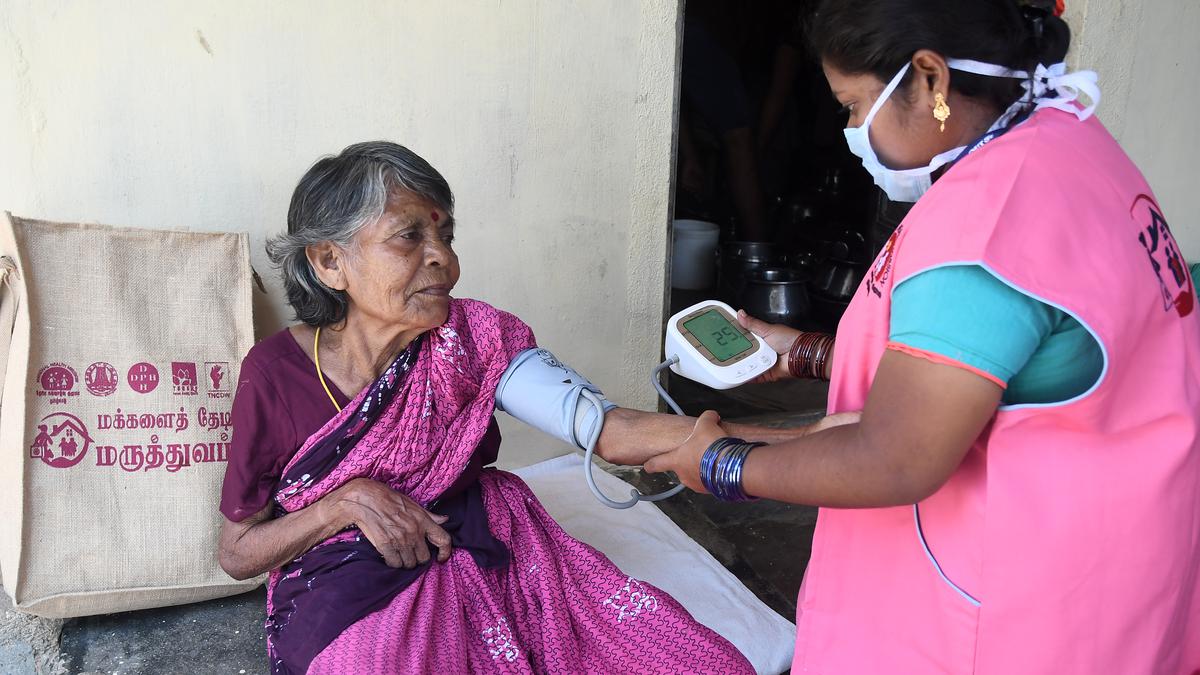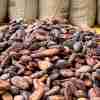
Makkalai Thedi Maruthuvam has helped in early detection of health issues, finds Planning Commission survey
The Hindu
A cross-sectional study done by the State Planning Commission on the Makkalai Thedi Maruthuvam Scheme shows that the door-to-door screening has helped in early detection of health issues among people. This has also helped in providing early treatment and medication at the right time.
A cross-sectional study done by the State Planning Commission on the Makkalai Thedi Maruthuvam Scheme shows that the door-to-door screening has helped in early detection of health issues among people. This has also helped in providing early treatment and medication at the right time.
For instance, the preliminary report shows that among 6,503 people who were surveyed, 4,793 (73.7%) had undergone diabetes screening in the last one year. Of them, 3,433 persons (71%) were screened for diabetes mellitus through the scheme.
Around 2,383 were screened during the field visits under the scheme, while another 1,050 were screened through institutions covered by the scheme. After screening and evaluation, it was found that 1,325 persons were diabetic. Of them, 765 (57.7%) were diagnosed through the scheme. And now over 54.03% of them are under treatment offered under the scheme. And medicines have been given to them through women health volunteers and many have shifted from private to government hospitals.
The objectives of the survey were to find details like the proportion ever visited by a women health volunteer, the proportion screened for diabetes and hypertension in the last one year, the proportion under treatment among diabetes mellitus and hypertension patients, the proportion under regular follow-up among diabetes mellitus and hypertension patients, and the proportion under control for diabetes mellitus and hypertension.
The data collection started on March 27 this year. The multi-stage cluster sampling method was used for selecting the samples. The term, cluster, refers to villages in rural areas and streets in urban areas. In each cluster, 30 households were randomly selected and all eligible members present in the household were interviewed after obtaining an informed written consent. The number of clusters in each district (urban and rural) was selected in proportionate to the population size. The total number of clusters selected across the State was 197 (after making decimal correction). Of them, 110 were rural clusters and 87 were urban clusters. The total number of households approached was 8,814 and the number of eligible participants available in households were around 6,590. Of them, 6,503 participants gave consent to be interviewed. Data collection was done through the EPICOLLECT 5 app.
According to the report, the Institute of Community Medicine, Madras Medical College, was given the task of conducting the survey in coordination with the Community Medicine Department of other government medical colleges in the State. A core committee was formed with faculty members from 8 medical colleges to formulate the protocol and develop the questionnaire. The questionnaire was piloted and necessary corrections were made.













